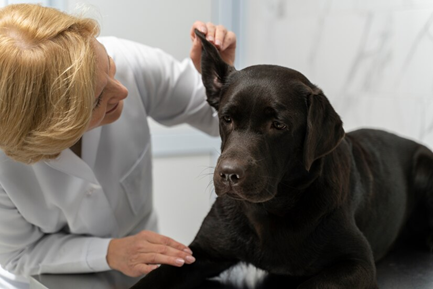Vaccinations are essential for protecting your dog from a variety of contagious diseases that can cause serious illness or even death. By following a recommended vaccination schedule, you can ensure that your furry friend is safeguarded against these threats.
Understanding the Importance of Dog Vaccinations
Vaccinations work by exposing your dog to a weakened or inactive form of a disease-causing pathogen. This triggers your dog’s immune system to produce antibodies that can fight off the disease if they are exposed to it in the future.
Benefits of vaccinating your dog
- Disease prevention: Vaccinations can prevent your dog from contracting serious illnesses such as distemper, parvovirus, rabies, and kennel cough.
- Reduced risk of transmission: By vaccinating your dog, you can help prevent the spread of diseases within your community.
Recommended Vaccination Schedule
The following is a general vaccination schedule for dogs. However, it is important to consult with your veterinarian to determine the most appropriate schedule for your specific dog’s needs and risk factors.
| Age (days) | Vaccine | Booster | Immunity Against |
| 30 days | Puppy DP | No Booster | Canine distemper and parvo |
| 45 days | DHPPiL | No Booster | Distemper, parvo, hepatitis, parainfluenza, and leptospirosis |
| 60 days | Canine Corona | No Booster | Coronavirus in puppies |
| 75 days | DHPPiL | Booster | Distemper, parvo, hepatitis, parainfluenza, and leptospirosis |
| 90 days | Anti-rabies | Booster | Rabies and canine corona |
| 105 days | DHPPiL | Booster | Distemper, parvo, hepatitis, parainfluenza, and leptospirosis |
| 120 days | Kennel Cough | Booster | Kennel cough and rabies |
Core vs. Non-Core Vaccines
Dog vaccines are typically categorized as core or non-core. Core vaccines are considered essential for all dogs, regardless of their lifestyle or geographic location. Non-core vaccines may be recommended for dogs with specific risk factors, such as those living in areas with high rates of certain diseases or those that frequently interact with other dogs.
Core vaccines
- Distemper
- Parvovirus
- Rabies
- Canine hepatitis
- Parainfluenza
- Leptospirosis
Non-core vaccines
- Canine coronavirus
- Kennel cough
- Lyme disease
- Influenza
Factors to Consider When Choosing Vaccines
When deciding which vaccines to give your dog, consider the following factors:
- Your dog’s lifestyle: If your dog spends a lot of time outdoors or interacts with other dogs frequently, they may be at a higher risk for certain diseases.
- Geographic location: The prevalence of certain diseases varies by region.
- Your dog’s health status: If your dog has a weakened immune system or underlying health conditions, they may require additional vaccinations or booster shots.
Booster Shots
Booster shots are necessary to maintain immunity against certain diseases. The recommended booster schedule will vary depending on the vaccine and your dog’s age and health.
Tips to consider!
- Your veterinarian can provide personalized advice on the best vaccination schedule for your dog.
- Adhering to the recommended vaccination schedule is crucial for protecting your dog from diseases.
- Ensure that your dog receives booster shots as needed to maintain immunity.
- Some dogs may experience mild side effects after vaccinations, such as lethargy or soreness at the injection site. If you notice any concerning symptoms, contact your veterinarian.
By following these guidelines and working closely with your veterinarian, you can ensure that your dog is adequately protected from preventable diseases and enjoys a long and healthy life.







